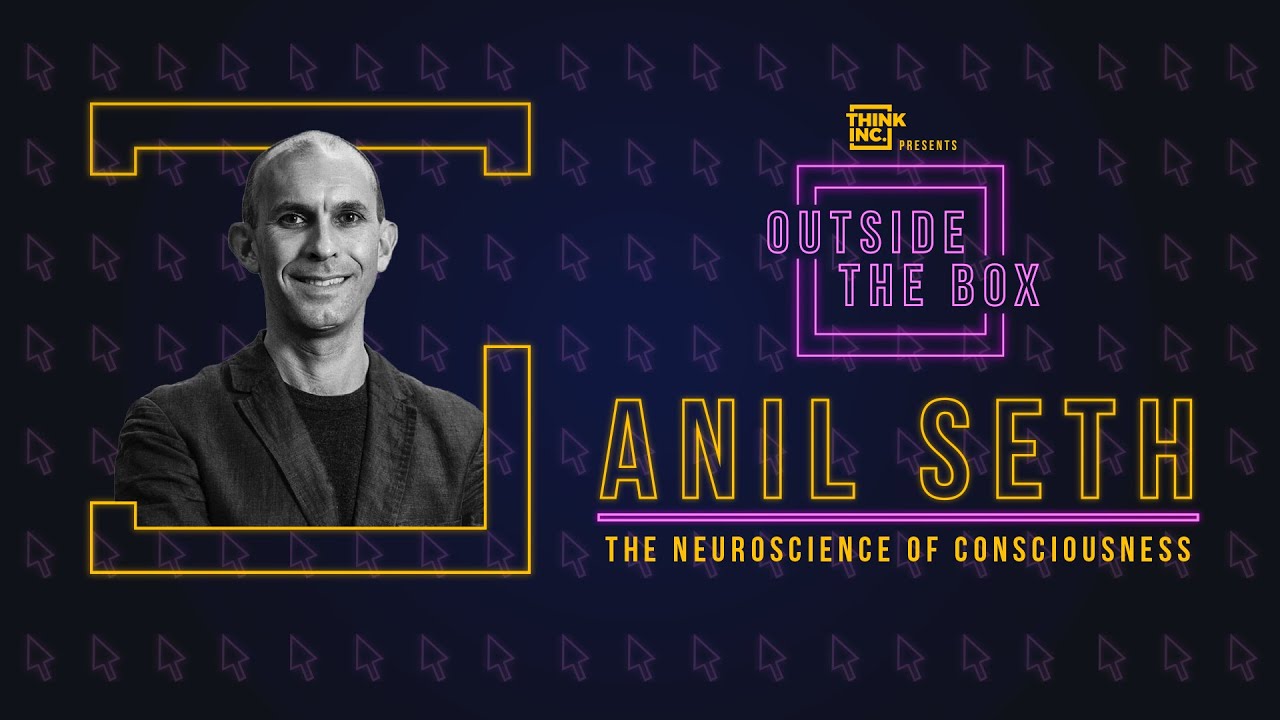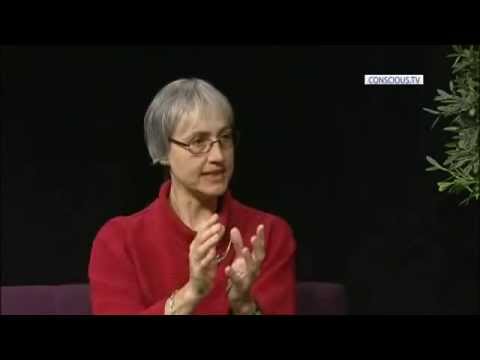Think Inc.
You are constantly hallucinating and your brain is the drug.
Subscribe to Think Inc. → http://bit.ly/33tJYEN
Our world is not real. Okay, that might be a bit dramatic, but our experience of it isn’t exactly accurate. When you hold your phone in your hand you can never say for certain that you know what it feels like, when you drink burned coffee, that bitter flavour isn’t really coming from your awful beverage, and when you see the colour red you can’t be 100% sure that it’s the same hue everyone else sees.
That’s because you are constantly tripping out, and your brain is the drug. If a hallucination is the experience of uncontrolled perception, perception is a controlled hallucination, and that control is monopolised by the pink sponge in your head. It’s the translator of sensory signals, the nervous mess expecting things to happen, and the supercomputer which uses all that to predict the future.
So if we never experience the world directly, but instead through the lens of our brains, then our experience of existing has little grounding in reality. Our consciousness is a creation of our own imagination… Confused? Scared? Angry for some reason? Don’t worry – Anil Seth is here to clear things up.
This video comes from our Outside The Box event series – live online events that feature prolific speakers whose ideas will challenge and change the way you see the world. Find out more at https://thinkinc.org.au/events/outside-the-box/
ABOUT THINK INC.
Think Inc. is a community of individuals on a mission to expose the true face of modern society. Armed with ideas, we defy the stale conventions of learning by shifting the world’s attention to global ideas, while opening minds.
We’re not on the fringe. We are trendsetters with the power to shift perceptions and reshape the face of the mainstream.
In 2014, Think Inc. launched with the mandate of creating a community where ideas can be shared, challenged, voiced and became a champion of democratising ideas. On this foundation, Think Inc. has grown into a powerful collective.
CONNECT WITH US
Join our mailing list → http://bit.ly/think-sign-up
Check out our store → http://bit.ly/ao-think-store
Website: https://thinkinc.org.au/
Facebook: https://www.facebook.com/ThinkInc.org.au/
Twitter: https://twitter.com/thinkincAU
Instagram: https://www.instagram.com/thinkinc/
LinkedIn: https://au.linkedin.com/company/think-inc.-events
#anilseth #consciousness #neuroscience
Source




"Conquest of Illusion" j.j.van der Leeuw
Read p.37 and you'll read the whole book.
I'm so grateful for people like him, it's really nice being informed, I really want to be like him when I grow up💗
I think I first heard Joscha Bach speak about consciousness being a controlled hallucination some years ago.
Thank you! 🌷
or simply rephrases the question
How does the brain learn to become a prediction machine is the real question, to say it is just postpones an answer to the question ‘what is consciousness?’
Great video, thanks for uploading it.
I am a physicist and I will provide solid arguments that prove that consciousness cannot be generated by the brain (in my youtube channel you can find a video with more detailed explanations). Many argue that consciousness is an emergent property of the brain, but it is possible to show that such hypothesis is inconsistent with our scientific knowledges. In fact, it is possible to show that all the examples of emergent properties consists of concepts used to describe how an external object appear to our conscious mind, and not how it is in itself, which means how the object is independently from our observation. In other words, emergent properties are ideas conceived to describe or classify, according to arbitrary criteria and from an arbitrary point of view, certain processes or systems. In summary, emergent properties are intrinsically subjective, since they are based on the arbitrary choice to focus on certain aspects of a system and neglet other aspects, such as microscopic structures and processes; emergent properties consist of ideas through which we describe how the external reality appears to our conscious mind: without a conscious mind, these ideas (= emergent properties) would not exist at all.
Here comes my first argument: arbitrariness, subjectivity, classifications and approximate descriptions, imply the existence of a conscious mind, which can arbitrarily choose a specific point of view and focus on certain aspects while neglecting others. It is obvious that consciousness cannot be considered an emergent property of the physical reality, because consciousenss is a preliminary necessary condition for the existence of any emergent property. We have then a logical contradiction. Nothing which presupposes the existence of consciousness can be used to try to explain the existence of consciousness.
Here comes my second argument: our scientific knowledge shows that brain processes consist of sequences of ordinary elementary physical processes; since consciousness is not a property of ordinary elementary physical processes, then a succession of such processes cannot have cosciousness as a property. In fact we can break down the process and analyze it step by step, and in every step consciousness would be absent, so there would never be any consciousness during the entire sequence of elementary processes. It must be also understood that considering a group of elementary processes together as a whole is an arbitrary choice. In fact, according to the laws of physics, any number of elementary processes is totally equivalent. We could consider a group of one hundred elementary processes or ten thousand elementary processes, or any other number; this choice is arbitrary and not reducible to the laws of physics. However, consciousness is a necessary preliminary condition for the existence of arbitrary choices; therefore consciousness cannot be a property of a sequence of elementary processes as a whole, because such sequence as a whole is only an arbitrary and abstract concept that cannot exist independently of a conscious mind.
Here comes my third argument: It should also be considered that brain processes consist of billions of sequences of elementary processes that take place in different points of the brain; if we attributed to these processes the property of consciousness, we would have to associate with the brain billions of different consciousnesses, that is billions of minds and personalities, each with its own self-awareness and will; this contradicts our direct experience, that is, our awareness of being a single person who is able to control the voluntary movements of his own body with his own will. If cerebral processes are analyzed taking into account the laws of physics, these processes do not identify any unity; this missing unit is the necessarily non-physical element (precisely because it is missing in the brain), the element that interprets the brain processes and generates a unitary conscious state, that is the human mind.
Here comes my forth argument: Consciousness is characterized by the fact that self-awareness is an immediate intuition that cannot be broken down or fragmented into simpler elements. This characteristic of consciousness of presenting itself as a unitary and non-decomposable state, not fragmented into billions of personalities, does not correspond to the quantum description of brain processes, which instead consist of billions of sequences of elementary incoherent quantum processes. When someone claims that consciousness is a property of the brain, they are implicitly considering the brain as a whole, an entity with its own specific properties, other than the properties of the components. From the physical point of view, the brain is not a whole, because its quantum state is not a coherent state, as in the case of entangled systems; the very fact of speaking of "brain" rather than many cells that have different quantum states, is an arbitrary choice. This is an important aspect, because, as I have said, consciousness is a necessary preliminary condition for the existence of arbitrariness. So, if a system can be considered decomposable and considering it as a whole is an arbitrary choice, then it is inconsistent to assume that such a system can have or generate consciousness, since consciousness is a necessary precondition for the existence of any arbitrary choice. In other words, to regard consciousness as a property ofthe brain, we must first define what the brain is, and to do so we must rely only on the laws of physics, without introducing arbitrary notions extraneous to them; if this cannot be done, then it means that every property we attribute to the brain is not reducible to the laws of physics, and therefore such property would be nonphysical. Since the interactions between the quantum particles that make up the brain are ordinary interactions, it is not actually possible to define the brain based solely on the laws of physics. The only way to define the brain is to arbitrarily establish that a certain number of particles belong to it and others do not belong to it, but such arbitrariness is not admissible. In fact, the brain is not physically separated from the other organs of the body, with which it interacts, nor is it physically isolated from the external environment, just as it is not isolated from other brains, since we can communicate with other people, and to do so we use physical means, for example acoustic waves or electromagnetic waves (light). This necessary arbitrariness in defining what the brain is, is sufficient to demonstrate that consciousness is not reducible to the laws of physics. Besides, since the brain is an arbitrary concept, and consciousness is the necessary preliminary condition for the existence of arbitrariness, consciousness cannot be a property of the brain.
Based on these considerations, we can exclude that consciousness is generated by brain processes or is an emergent property of the brain. Marco Biagini
The Role of Abiotic Environmental Factors in the Vertical … ?/.,// Nd.D
All living things have consciousness more or less, a bacterium just has a small, simple amount. But a colloquia of many species of microbia, a syntrophic biofilm, might by way of quorum be actually conscious.
Green dot on rotation
It's becoming clearer that with all the brain and consciousness theories out there, the proof will be in the pudding. By this I mean, can any particular theory be used to create a human adult level conscious machine. My bet is on the late Gerald Edelman's Extended Theory of Neuronal Group Selection. The lead group in robotics based on this theory is the Neurorobotics Lab at UC at Irvine. Dr. Edelman distinguished between primary consciousness, which came first in evolution, and that humans share with other conscious animals, and higher order consciousness, which came to only humans with the acquisition of language. A machine with primary consciousness will probably have to come first. The extended TNGS is a materialist theory. I believe the physical world is objectively real because I can't ignore the physical suffering in the world. I don't believe it is the only reality, however. I believe physical reality, and all other realities, manifest from the one fundamental reality of spiritual love. But even though the physical world is a manifestation of this deeper reality, I still believe it is real. It makes more sense to me that a manifestation of something real would also be real.
Why hasn’t the Evo2.0 OOL $10M prize been awarded to any scientists yet?
What are they waiting for?
What determines the type and spatiotemporal condition of the morphogen sources?
How are the TFBS motifs set to begin with? What determines their setup timing?
How did the eukaryotic cells appear?
Shouldn’t our human species evolve to a higher species?
What is like to be a bat? 😉
When you say that you have perceptions, that you see, that you have experiences, what do you mean by you? Where does “you” reside in the brain or how does “you” emerge from rain activity?
What is the hard problem of consciousness?
Is it still a problem?
If it is, what is keeping it from getting resolved?
Has OOL been resolved yet?
Where are the feedback signals come from and how are they produced and what triggers them?
Where are the perceptions produced?
How are they produced?
#sg1 #sg1
Consciousness explained https://www.facebook.com/guillermo.b.deisler/posts/10221889971174371
Amazing! What is the function of consciousness? How does consciousness emerge from the materials in the brain when the brain is made up of the same matter as the universe?
thank you for this Anil